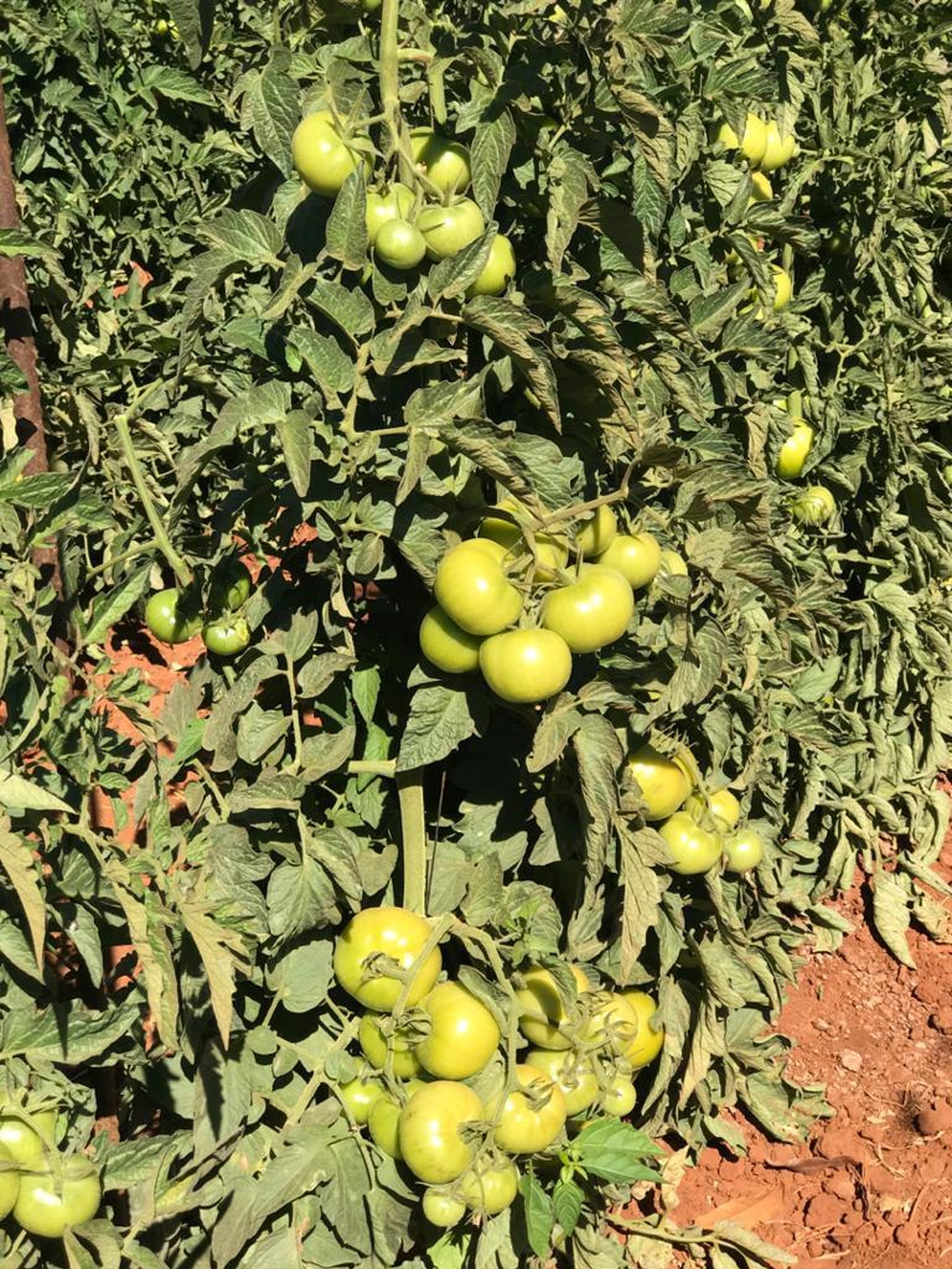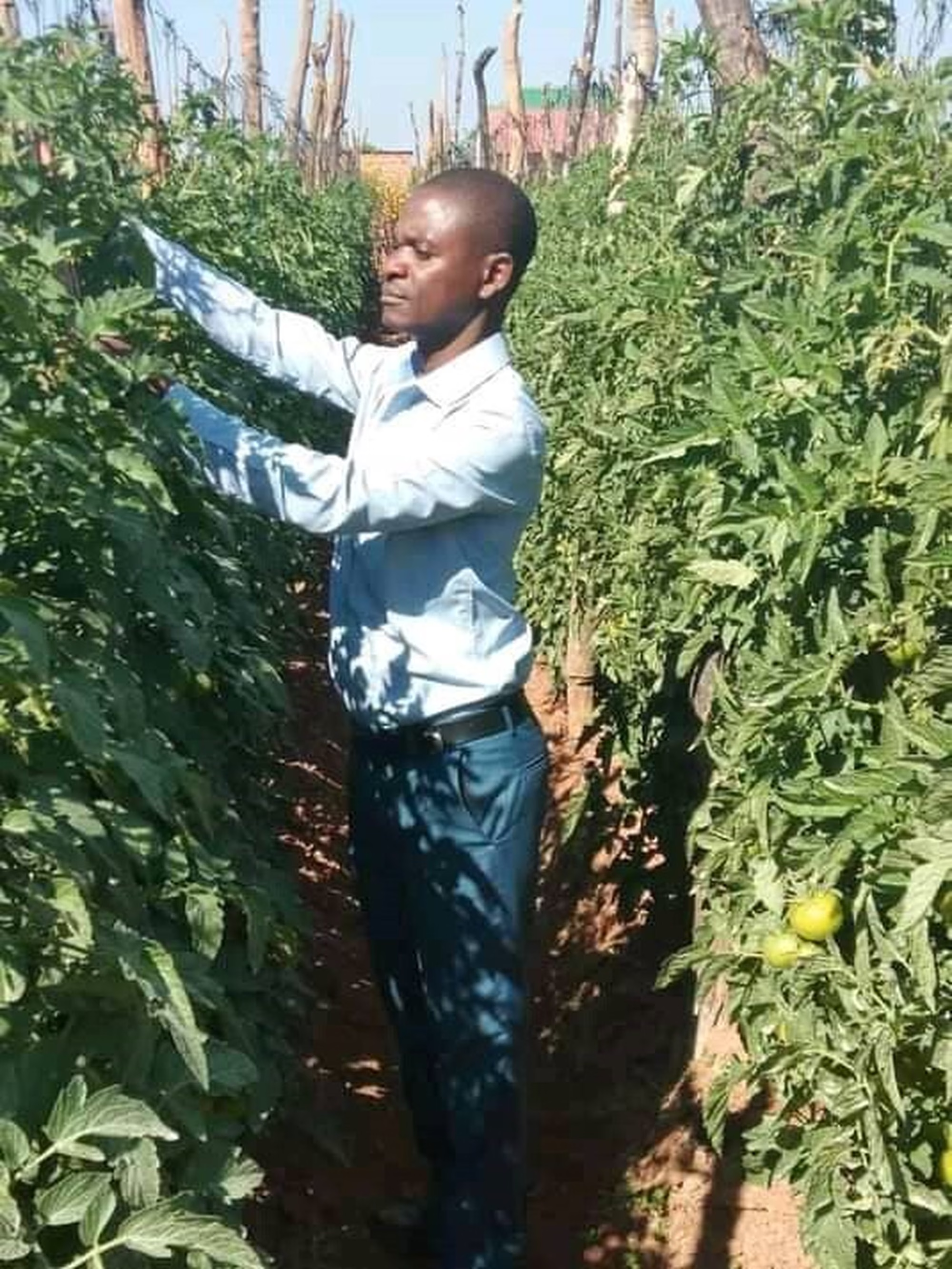Since 2017 when the wonder tomato hybrid Trinity hit the Zambian market both as a final product on the open market and on farms as a crop, its popularity has been rising.
Trinity is an indeterminate tomato with a combination of multi-virus and strong bacterial resistance, which really comes to the fore during the rainy season when these pressures are at their highest. It has a very high and uniform truss setting and a class-leading yield potential as some of the testimonials below show.
The variety has a strong ability to keep the size uniform to the top of the plant and in general, is a well-balanced hybrid tomato. Although it is suited to both open-field and greenhouse production, it is mainly grown in open-field settings across Zambia.
Trinity produces fruits with excellent quality and uniformity with an average mass of 140g to 160g. Its thick walls give it an excellent shelf-life – which makes it a popular choice with local marketers.
With all of these benefits, growth in demand for Trinity seeds was expected, but local representatives did not foresee selling out six months’ supply in a single month and by mid-January 2021 the seeds were out of stock! Now that it is back in stock, we have great pleasure in communicating a few farmers’ testimonials.
A farmer from Monze in Southern Province reported that after nearly 10 days of rain in February of 2020, he lost an entire crop of a competitor’s hybrid, but a crop of Trinity in the same field withstood the disease pressure and was barely affected. This was just one testimony out of so many others on the resilience of Trinity in the rain season.
Oriental Farm in Lusaka’s Makeni area attained more than 200 metric tons from 1 ha of an open-field Trinity crop. This translates to a yield of 13kg per plant as they planted 15 000 plants. The farmer said the yield would have been higher had it not been for the weight of the plants collapsing a few of his support trellises.
On a smaller scale, Kester Hasimuna of Pemba in Southern Province planted 2 000 Trinity seedlings. He only harvested for four months as the crop was overwhelmed by Tuta absoluta, but during this period he managed to harvest 18.2 metric tons, the equivalent of 9kg per plant. For a small-scale farmer, this was an outstanding yield and the best yield Kester has had on tomatoes.
Another farmer in the Chongwe district about 60 km east of Lusaka, Simon Gondo, does not mince words when it comes to testifying about what Trinity has done for him. The farmer plants about 30 000 tomato plants every four months. In January 2020, his brother in Zimbabwe convinced him to try Trinity as he had only been growing opposition hybrids. He planted 27 000 Trinity plants in February 2020 and harvested them up to October 2020. He was so happy with Trinity’s performance that he will not go back to other hybrids. According to the farmer, Trinity performs better in four key areas than any other indeterminate hybrids he has used before:
Yield: the 27 000 plants yielded 8 550 x 30kg crates equivalent to 256.5 metric tons, which is equivalent to 143 metric tons per hectare
Excellent demand on the open market: Trinity ripens deep red, is glossy, has no green shoulders and has thick walls for long shelf life and the combination of these morphological characteristics makes it the number one choice on the open market
Excellent fruit quality in the rain season: Managing a ripening tomato crop in the rain season is a massive challenge for most hybrids and for most farmers owing to discolouration and cracking. Trinity doesn’t give discoloured fruits and doesn’t crack
Most hybrids succumb to fungal diseases once they are exposed to long periods of continuous rains. For Simon, two other hybrid crops were wiped out by diseases, but Trinity remained almost unscathed.


Kester Hasimuna with Trinity plants.